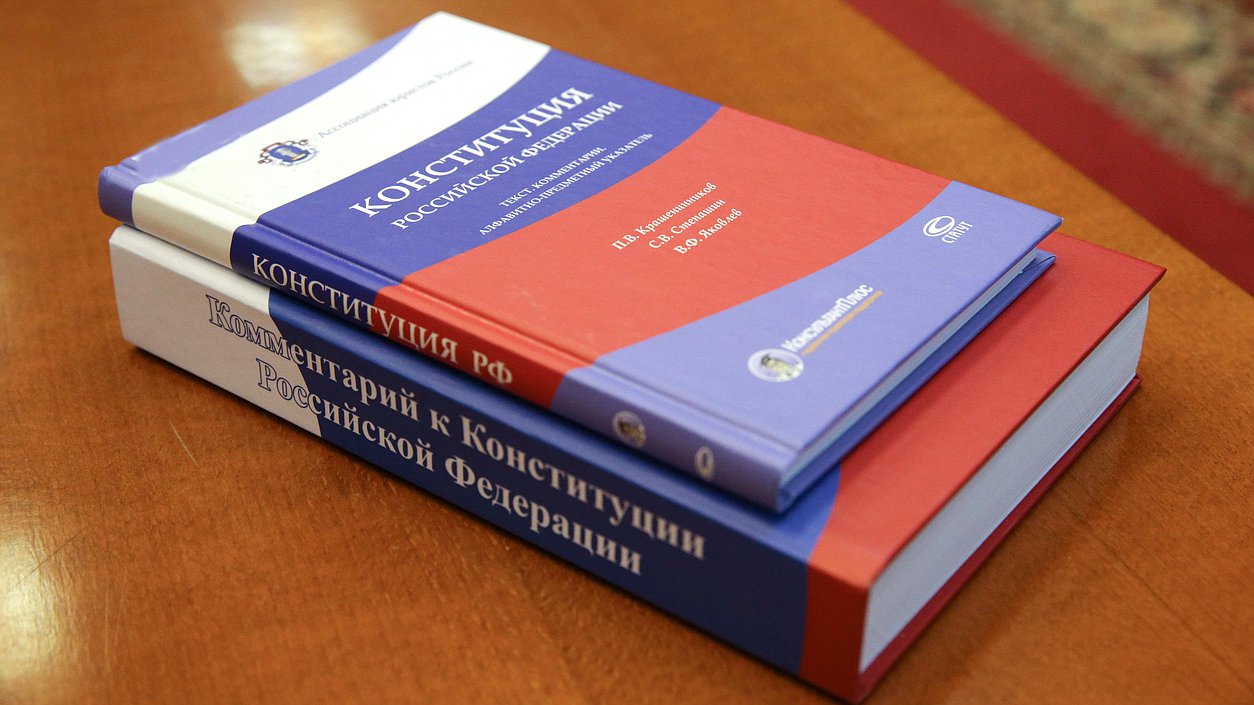
The current version of the Constitution was adopted by nationwide voting on December 12, 1993, after the dissolution of the Soviet Union. 58.43% people voted for the adoption of the constitution, and 41.57% voted against it. On the same day, the first State Duma in the history of modern Russia was elected. The new Constitution came into force on the day when it was published in the Rossiyskaya Gazeta, December 25, 1993.
The current Constitution of the Russian Federation consists of the Preamble and two sections. The Preamble proclaims that the people of Russia approve this Constitution; democratic and humanistic values are determined; Russia's place in the modern world is defined.
The first section consists of 9 chapters and 137 articles enshrining the foundations of the political, social, legal, economic, and social systems of the Russian Federation, the fundamental rights and freedoms of the individual, the federal structure of the Russian Federation, the status of public authorities, and the procedure for revising the Constitution and introducing amendments.
The second section determines the final and transitional provisions and serves as the basis for continuity and stability of constitutional legal norms.
The following bodies can initiate a change of the Constitution: the President, the Federation Council, the State Duma, the Government, the legislative bodies of the regions, and a group of at least one-fifth of the members of the Federation Council or the State Duma.
Amendments to the Constitution, except for specific articles, are adopted by the State Duma and the Federation Council in the form of a federal constitutional law approved by the legislative bodies of at least two-thirds of the regions of the Russian Federation.
The articles on the fundamental elements of the constitutional system, rights and freedoms of a person and citizen, as well as the revision of the Constitution, can be changed only by a decision of the Constitutional Assembly, which shall be convened if the amendment proposal is supported by three-fifths of the votes of the members of the Federation Council and the State Duma. The Constitutional Assembly may adopt a new text of the Constitution itself, or it may submit this question to a nationwide voting.
The most important amendments to the Constitution as of today:
1. the term of office of the President was increased from 4 up to 6 years, and the term of office of the members of the State Duma from 4 to 5 years on December 30, 2008. In addition, these amendments established that the Government shall provide an annual report to the State Duma;
2. the judicial system of the Russian Federation was changed on February 5, 2014;
3. a change of formation of the Federation Council was approved on July 21, 2014;
4. remaining amendments relate to changes in the composition of the Russian Federation. Thus on March 21, 2014, the Republic of Crimea and the city of federal importance Sevastopol were included in the Russian Federation.
The whole text of the Constitution can be accessed using this link:


